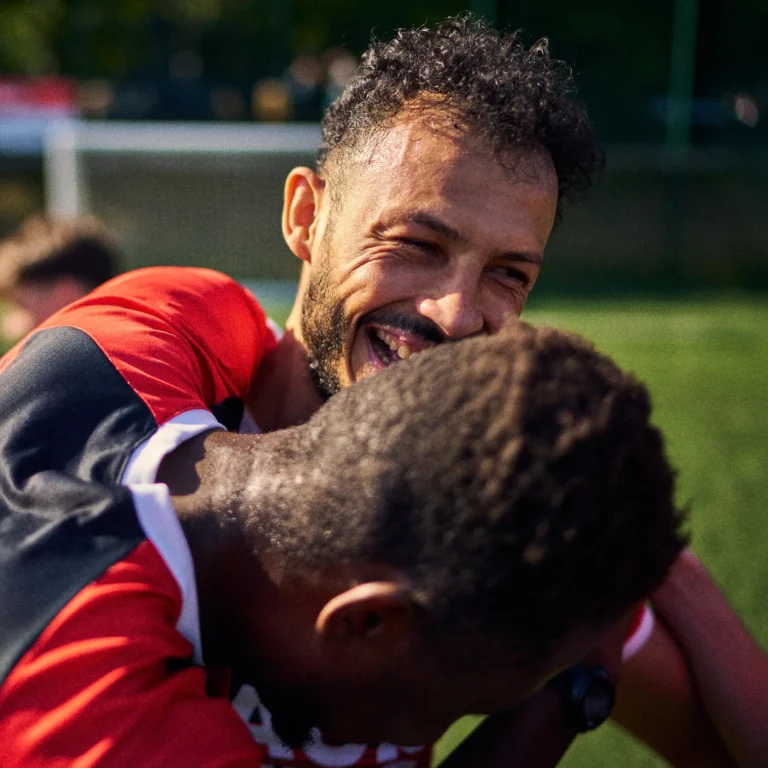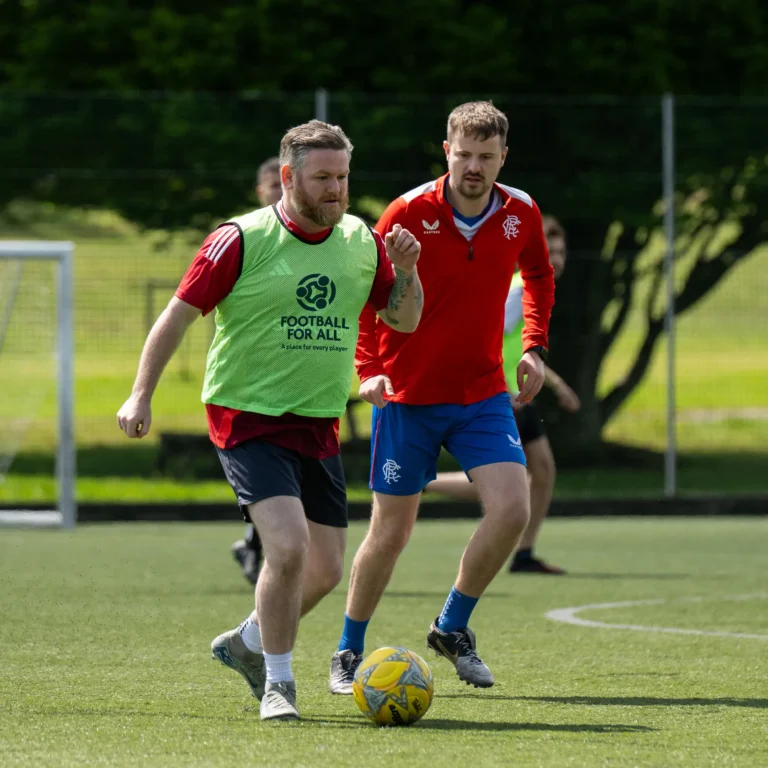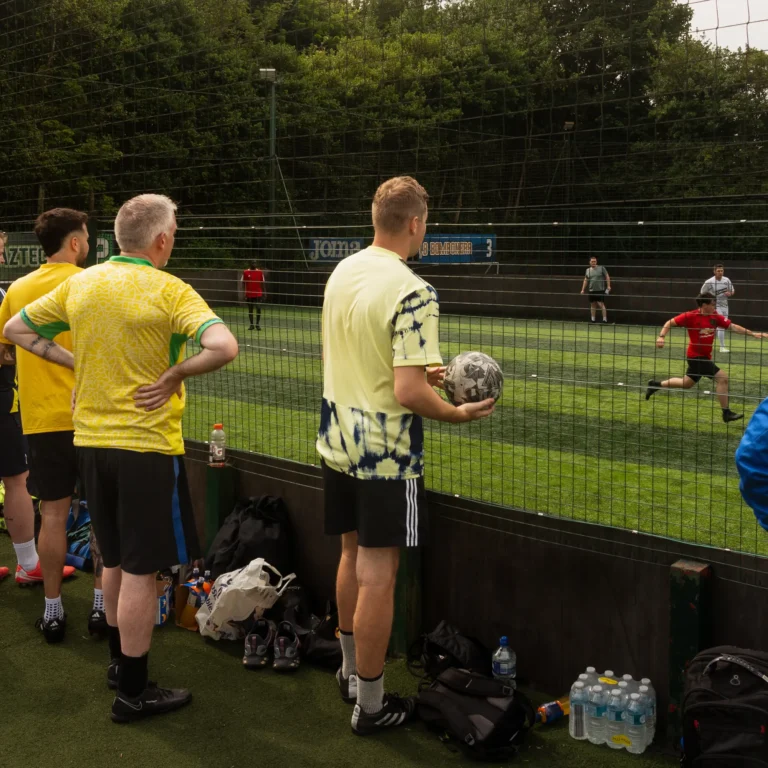Recreational football in the UK heavily relies on a role that often goes unnoticed. Behind every kickabout, there’s someone quietly making it work. It isn’t a social media influencer or a brand new 4G pitch keeping casual games going. It’s the humble game host. Across Britain, local football matches quietly depend on these volunteers. This post shines a light on the game host’s vital work in UK community football, an often overlooked truth behind UK’s recreational football success.
What is a Game Host
A game host is the person who makes a casual football game happen each week. They are not a referee or a coach but a volunteer who handles all the on-pitch arrangements. At Football for All, we describe the ideal game host as a reliable, team-player, good communicator and organised community member. In practice, this means the game host is the one making sure there’s a ball to play with, fresh bibs to split the teams and that everyone has an enjoyable, welcoming session.
“I just love getting people together to play” says Dan, a game host in Liverpool. Game hosts like Dan come from all walks of life. They might be fellow players but what they share is a commitment to keeping their local game going week in, week out.

What Game Hosts do each week
Every week, the game host takes care of the small but essential tasks that make a recreational football session possible. Before the game, the host preps everything. They check the equipment (football, pump, bibs) and arrive about 10 minutes early to set up. As players show up, the host introduces themselves and welcomes any newcomers (also checking that all players are adults in adult sessions). This friendly welcome sets a positive tone and makes sure new players feel included from the start.
At the game itself, the host takes on a coordinator’s role. They’ll sort out teams and get the match started as soon as possible. “Once everyone’s arrived, I’ll quickly split up teams and explain our house rules,” says Roxi, who hosts a Tuesday night women-only game in London. “We don’t have referees so if there’s a foul or close call, we make a group decision and keep things moving.” In fact, nearly all casual games run without an official referee so honesty is key.
A game host also keeps track of time and score and ensure fairness by rotating goalkeepers or swapping players if one side is much stronger. The goal is simply to keep the match fun and balanced for everyone.
After the game, the host’s role is to wrap things up smoothly. They make sure the match finishes on time (so the next group can use the pitch) and that everyone leaves the venue without issue. If there were any problems or ideas to improve the session, the host have an easy access to contact our team.
It’s all part of continuously keeping the game safe and enjoyable. As James, a long-time host in Birmingham, puts it: “I stay a bit after to thank people for coming and to double-check nothing’s left behind. It’s nothing special, just closing out the night on a good note.”
Game hosts play a bigger role in community football than most people realise
Game hosts may not seek the spotlight but recreational football simply wouldn’t exist without them. They are the invisible hand that turns a group of individuals into two teams ready to play each week. The Football Association notes that volunteers are “vital in making everyone feel welcome” and ensure people can play football in all kinds of settings (The FA). Sport England puts it even more plainly. Without volunteers, “most community sport and physical activity simply wouldn’t happen.” In local football terms, if no one is willing to bring balls and bibs to the weekly kickabout, there is no kickabout. It’s as simple as that.
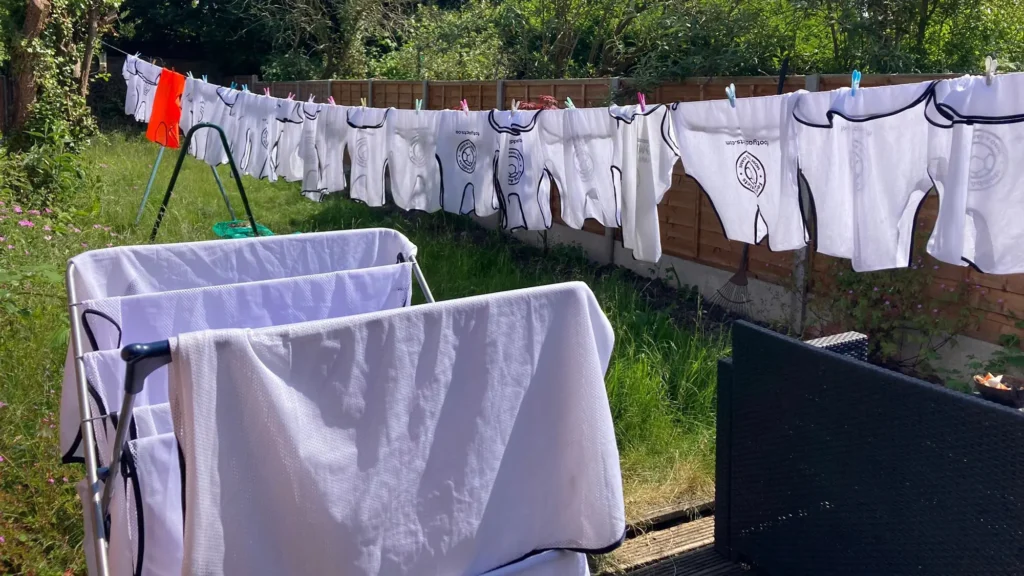
“If I didn’t show up to run the Wednesday game, 18 guys would be standing around with no match,” says Adam, who hosts community games in Leeds. The impact of these people extends beyond just having a game on the calendar. By consistently providing a safe and structured space to play, hosts create opportunities for regular exercise, social bonding and even community improvement. They are crucial part of our mission to create healthier and happier communities.
In fact, well-organised local football sessions have been linked to wider social benefits. One project in North London saw crime in the area drop by 66% after regular evening football sessions were introduced (a result highlighted in Football for All’s analysis of how football can reduce crime). Game hosts might not work for the police or NHS but by getting people playing and interacting, they contribute to safer neighbourhoods in ways that might surprise you.
What people gain from hosting local games
Hosting is labour of love for the game and the community. But that doesn’t mean hosts gain nothing from the experience. On the contrary, volunteer hosts often get as much out of it as the players do. Sport England research finds that giving your time to support sport can improve your health, reduce stress, build confidence and develop skills. In other words, volunteers enjoy many of the same benefits as the players they’re helping. The NHS notes that regular community involvement boosts confidence, improves soft skills and improves life satisfaction levels so hosting a game is effectively a social workout that leaves the host feeling healthier and happier, too.
There are also practical perks. Community projects like Football for All make sure their hosts are appreciated for helping. Hosts typically get their equipment provided (quality footballs, pumps, bibs) and enjoy a free spot to play each week. Once someone becomes a regular host, they might even receive a branded training top or other small rewards. These little bonuses acknowledge the commitment hosts give but ask any host and they’ll tell you it’s not about the free kit.
“I don’t do it for the freebies,” says Oussama, our Manchester game host. “Honestly, the best part is seeing everyone show up with a smile, week after week. I’ve made so many friends through hosting. That keeps me and them coming back.” The role can be deeply fulfilling. Game hosts gain friendships, leadership experience and the satisfaction of knowing they’re making a positive difference every week.
Traits of a good Game Host
Not everyone is suited to be a game host. It takes a blend of reliability, people skills and love of the sport to do it well. Our best game hosts share a few common traits:
- Consistently shows up on time, rain or shine and can be counted on every week. Players know they won’t be left waiting around
- Plans their journey ahead, bring equipment and keep games running smoothly. Nothing is forgotten or left to the last minute
- Clearly explains game details and rules and keeps everyone in the loop. Good at resolving confusion or disputes calmly on the pitch
- Makes new players feel included and treats everyone equally. Ensures teams are balanced and that all players get a fair chance to participate
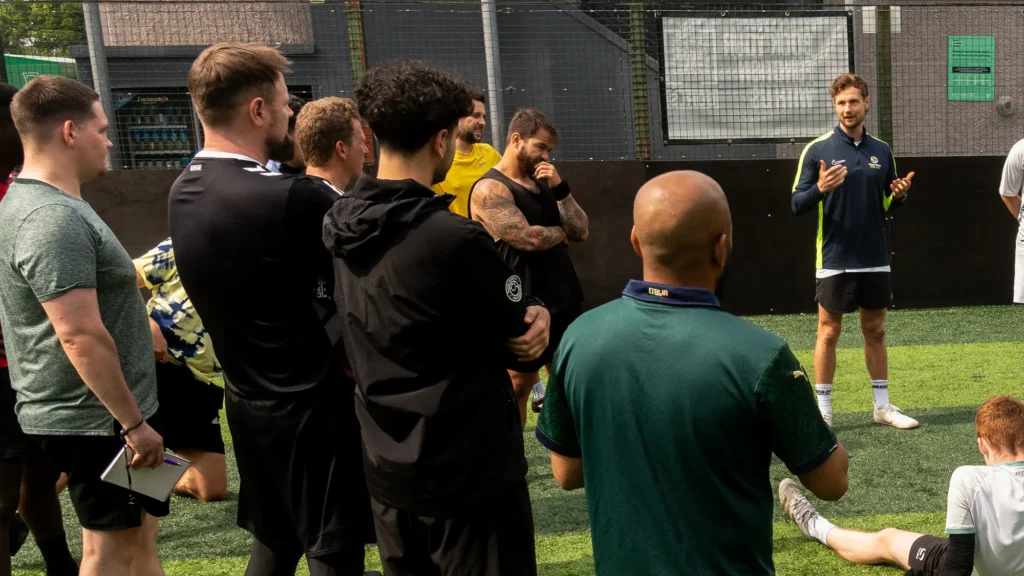
“You don’t need to be a great player to be a great host,” notes Joseph, our Glasgow community manager. “It’s more important to be dependable and make everyone feel welcome. People trust me to be there and keep it fair. This wins me some respect on and off the pitch I think. That’s what matters.” In short, a good game host is part organiser, part diplomat and part cheerleader. They create a positive vibe and handle some small behind-the-scenes tasks so that everyone else can just enjoy the football.
Supporting Game Hosts means supporting the game
When you recognise those who host games, you’re really supporting the entire community football ecosystem. Every additional volunteer willing to organise a match means more opportunities for people to play. Conversely, if existing hosts burn out or lack support, local games can disappear. Recognising and helping game hosts is an investment we’re making to keep community football healthy and thriving. This support can take many forms, big and small.
We like to organise Host days where our team meet all the volunteers a few times every year for a fun, stress-free tournament and a chance to get to know each other better. Players and the wider community can help too in simple ways. From offering a thank you or feedback, to assisting with setup if the host could use an extra hand.
Importantly, as casual football continues to grow in popularity (with demand for local kickabouts rising fast), the need for willing hosts grows as well. Recent years have seen a boom in casual football participation across the UK. A trend documented in our “Casual Football and its explosive growth in the UK” blog post. New games are popping up in towns and cities everywhere and behind each one there’s likely a volunteer stepping up to help.
Supporting these hosts will be key to sustaining that growth. It also amplifies football’s positive impact. When hosts are supported, they can keep organising games that get people active and socially connected. We hope the right people within the funding space read this and could offer their support too.
If you play in a local kickabout, take a moment to recognise the person making it possible each week. And if you have the passion and a bit of spare time, consider becoming a host yourself. You might find it’s one of the most rewarding roles in football.
